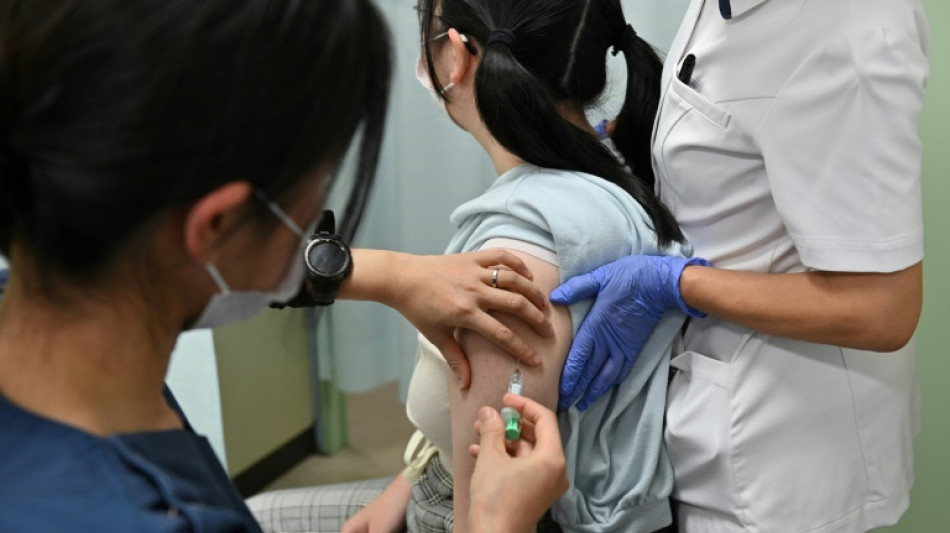
-
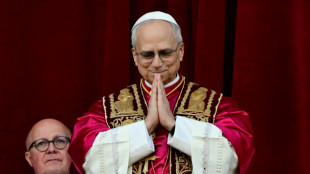 Tennis, Twitter and marinated fish: Things to know about Pope Leo
Tennis, Twitter and marinated fish: Things to know about Pope Leo
-
Liverpool's Salah voted Football Writers' Player of the Year

-
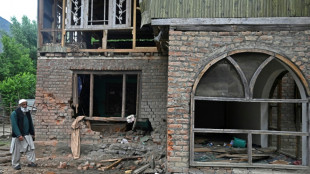 Pakistan says India has brought neighbours 'closer to major conflict'
Pakistan says India has brought neighbours 'closer to major conflict'
-
Stocks lifted by hopes for US-China talks after UK deal
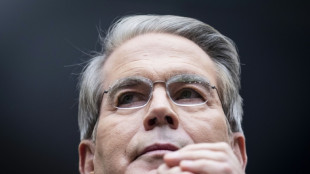
-
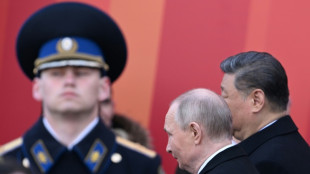 Putin hails troops fighting in Ukraine as foreign leaders attend parade
Putin hails troops fighting in Ukraine as foreign leaders attend parade
-
Howe urges Newcastle to fulfil Champions League expectation

-
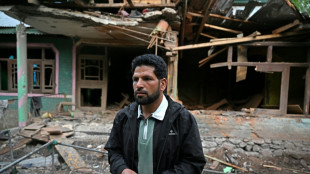 Weary border residents in Indian Kashmir struggle to survive
Weary border residents in Indian Kashmir struggle to survive
-
Leo XIV says Church must fight 'lack of faith' in first mass as pope

-
 Liverpool boss Slot fears replacing Alexander-Arnold will be a tough task
Liverpool boss Slot fears replacing Alexander-Arnold will be a tough task
-
British Airways owner unveils big Boeing, Airbus order

-
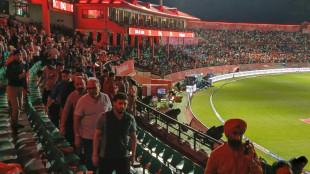 IPL suspended for one week over India-Pakistan conflict
IPL suspended for one week over India-Pakistan conflict
-
Slot says all at Liverpool sad to see Alexander-Arnold go

-
 Leo XIV celebrates first mass as pope in Sistine Chapel
Leo XIV celebrates first mass as pope in Sistine Chapel
-
India says repulsed fresh Pakistan attacks as death toll climbs
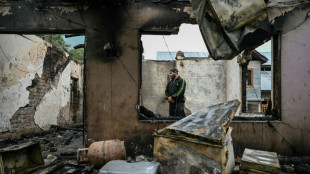
-
 Japan's Panasonic targets 10,000 job cuts worldwide
Japan's Panasonic targets 10,000 job cuts worldwide
-
Putin evokes WWII victory to rally Russia behind Ukraine offensive

-
 China exports beat forecasts ahead of US tariff talks
China exports beat forecasts ahead of US tariff talks
-
Leo XIV, the 'Latin Yankee', to celebrate first mass as pope

-
 Most stocks lifted by hopes for US-China talks after UK deal
Most stocks lifted by hopes for US-China talks after UK deal
-
IPL suspended indefinitely over India-Pakistan conflict: reports

-
 German lender Commerzbank's profits jump as it fends off UniCredit
German lender Commerzbank's profits jump as it fends off UniCredit
-
Rare bone-eroding disease ruining lives in Kenya's poorest county

-
 India says repulsed fresh Pakistan attacks as de-escalation efforts grow
India says repulsed fresh Pakistan attacks as de-escalation efforts grow
-
Zhao's historic snooker title sparks talk of China world domination

-
 'High expectations': EU looks to Merz for boost in tough times
'High expectations': EU looks to Merz for boost in tough times
-
Poisoned guests rarely invited before deadly mushroom lunch, Australia trial hears

-
 China sales to US slump even as exports beat forecasts
China sales to US slump even as exports beat forecasts
-
Indian cricket to make 'final decision' on IPL over Pakistan conflict

-
 Dethroned Bundesliga champions Leverkusen face uncertain future
Dethroned Bundesliga champions Leverkusen face uncertain future
-
China can play hardball at looming trade talks with US: analysts

-
 French monuments in trouble while PSG prepare for Champions League final
French monuments in trouble while PSG prepare for Champions League final
-
Newcastle face Chelsea in top five showdown, Alexander-Arnold in spotlight

-
 Flick's Barca must show 'hunger' in crunch Liga Clasico
Flick's Barca must show 'hunger' in crunch Liga Clasico
-
Clasico the last chance saloon for Ancelotti's Real Madrid

-
 Timberwolves overpower Warriors to level series
Timberwolves overpower Warriors to level series
-
Chinese fabric exporters anxious for US trade patch-up

-
 Putin gears up to host world leaders at lavish army parade
Putin gears up to host world leaders at lavish army parade
-
Nearing 100, Malaysian ex-PM Mahathir blasts 'old world' Trump

-
 Leo XIV, first US pope, to celebrate first mass as pontiff
Leo XIV, first US pope, to celebrate first mass as pontiff
-
Asian stocks lifted by hopes for US-China talks after UK deal

-
 Former head of crypto platform Celsius sentenced 12 years
Former head of crypto platform Celsius sentenced 12 years
-
Ex-model testifies in NY court that Weinstein assaulted her at 16

-
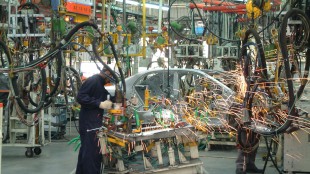 LD Law LLP Wins 2025 Consumer Choice Award for Real Estate Law in Toronto Central
LD Law LLP Wins 2025 Consumer Choice Award for Real Estate Law in Toronto Central
-
Award-Winning Senior Living: Kingsway Place Retirement Residence Wins 2025 Consumer Choice Award

-
 Strawberry Fields REIT Announces First Quarter 2025 Operating Results
Strawberry Fields REIT Announces First Quarter 2025 Operating Results
-
Amphastar Pharmaceuticals to Present at the 2025 Bank of America Health Care Conference

-
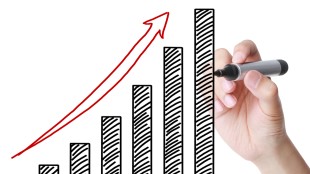 Ascendant Resources Announces Closing of Second and Final Tranche of Non-Brokered Private Placement
Ascendant Resources Announces Closing of Second and Final Tranche of Non-Brokered Private Placement
-
Nestlé and OMP Showcase Approach to Future-Ready Supply Chain at Gartner Supply Chain Symposium/Xpo in Barcelona

-
 Genflow Biosciences PLC Announces Share Subscription, Director's Dealing and Update
Genflow Biosciences PLC Announces Share Subscription, Director's Dealing and Update
-
Argo Blockchain PLC Announces 2024 Annual Results and Restoration of Listing


'Finally we can protect women': Japan's HPV vaccine battle
Thousands of lives could be saved as Japan begins to actively promote the HPV vaccine -- which can prevent cervical cancer -- after a decade of misinformation and weak policy left inoculation rates dismally low, advocates say.
The percentage of teenage girls getting the human papillomavirus (HPV) vaccine has been close to zero since the country's 2013 decision not to promote the jab as panic erupted over alleged side effects.
But from Friday, authorities will actively recommend and share information about the vaccine, which is free for girls aged 12-16 in Japan and has been found safe in extensive trials.
"Finally we can protect the lives of young women," ruling party politician Junko Mihara, a former vice health minister and cervical cancer survivor, told AFP.
Even then, "we will lose so many lives because of the past eight years," she said.
Nearly always caused by sexually-transmitted HPV, cervical cancer is the fourth most common type of the disease in women globally.
In Japan, around 10,000 women develop cervical cancer each year, and it causes nearly 3,000 deaths.
Yet the World Health Organization regards the disease as "preventable and curable" and has outlined a strategy to eliminate it, which includes having 90 percent of girls inoculated by the age of 15 by 2030.
More than 100 countries have started using the vaccine, including Britain, where cervical cancer cases have already plummeted among women who received the jab, according to a recent study in The Lancet medical journal.
- Misinformation -
When Japan added the HPV vaccine to its national programme of routine inoculations in April 2013, initial uptake from the target group, girls aged 12-16, was around 70 percent.
But the government stopped actively promoting the jab just two months later, as sensationalist reports of alleged harmful side effects spread fear among the public.
It was still available for free, but without official endorsement, take-up soon dropped to less than one percent.
"The health ministry placed more emphasis on public opinion than scientific evidence," said Kanako Inaba, a gynecologist who runs an organisation providing information on the HPV vaccine.
This week's policy shift follows years of campaigning by medics and advocates like Mihara, a former actress who went into politics in 2010 to advocate for the new HPV vaccine.
But she struggled to battle misinformation, with media reports failing to make clear the difference between health problems that occurred after vaccination, and side effects directly linked to the jab.
Families gave emotional accounts on TV claiming the HPV vaccine had left their daughters unable to walk, and pro-vaccine campaigners like Mihara found themselves the target of angry abuse.
"People came to my office, and faxes kept coming," she recalled.
While there have been concerns over Japanese vaccine hesitancy in the past, the success of the country's Covid-19 vaccine drive -- with 80 percent of the population double-jabbed -- shows how influential government policy can be, according to Inaba.
"The government should have also taken a firm stance on the HPV vaccine, by providing evidence," like they did with the Covid vaccine, the doctor said.
Now, as more HPV shots are given, healthcare workers should "understand that girls might be anxious" about side-effects, and "provide information in an empathetic way," she added.
- 'Not afraid' -
A 2020 study in The Lancet predicted that Japan's "HPV vaccine crisis" could result in an additional 5,000 cervical cancer deaths among girls born between 1994 and 2007, compared to if uptake had remained at 70 percent.
The health ministry is trying to minimise the damage by offering free HPV vaccines to women who missed the shot over the past nine years, when they were of target age.
University student Utako Kawakami, 20, wishes she had been vaccinated before becoming sexually active.
Her mother was wary about giving her the shot as a teen due to media reports, although she has now changed her mind.
Kawakami got her second HPV vaccine dose last year, however, and told AFP she "wasn't afraid".
"I made my decision based on data," said the 20-year-old, who now posts information about the vaccine on social media for younger followers.
The vaccine's promotion still faces some opposition, notably from women who say they suffer pain, fatigue or other conditions after being inoculated.
Several lawsuits have been filed against the government and drugmakers since 2016 over alleged side effects, but no verdicts have yet been made.
For lawmaker Mihara, who had her uterus removed after developing cervical cancer, accurate information is key to boosting the vaccination rate.
"I don't want younger people to go through what I went through," she said.
O.Johnson--AMWN